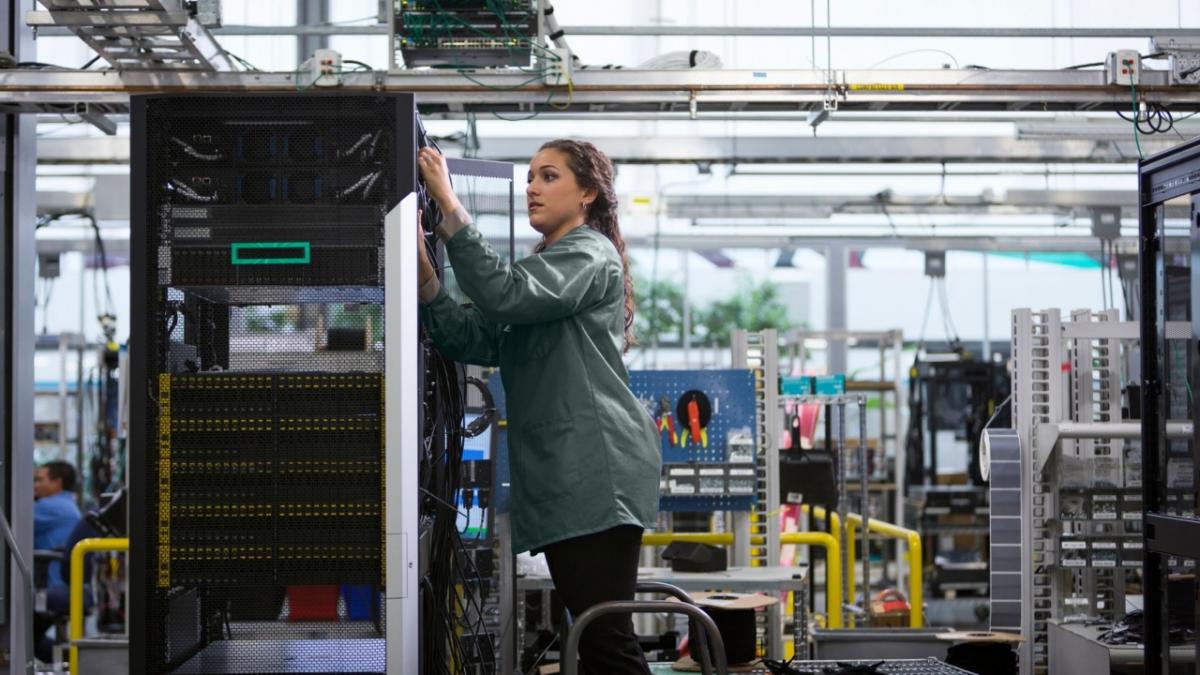HPE’s Commitment to Protecting Human Rights
Glenn Leon, SVP, Chief Ethics & Compliance Officer

Human rights are fundamental to HPE’s values and mission to advance the way we live and work
December 10 was Human Rights Day, and it marked the 71st anniversary of the Universal Declaration of Human Rights. The Declaration, made by the United Nations General Assembly, acknowledges the indisputable rights to which everyone is inherently entitled as a human being, regardless of regardless of race, sex, color, religious beliefs, language, political or other opinion, national or social origin, property, birth or other status.
Even as this important day has passed, we should reflect on how human rights are fundamental to HPE’s values and mission to advance the way we live and work. As a company, we firmly believe that all people are entitled to basic freedoms and standards of treatment. Both inside and outside the company, we treat all people with fairness, dignity, and respect. We are actively working to ensure ethics and integrity throughout our supply chain and in the places we operate, and advocating for change when people are being wronged. As such, our human rights team partners day-to-day with numerous departments, our suppliers and partners to implement our beliefs.
Protecting Human Rights in All We Do
HPE is a recognized leader in combating forced labor in our supply chain, and we work to influence the industry in this area. We developed the industry’s first Foreign Migrant Worker Standard in 2015, and in 2018, KnowTheChain ranked HPE third in their corporate benchmark of 40 ICT companies for our efforts to address forced labor in our supply chain.
HPE has a team dedicated to maintaining our commitment to protecting the human rights of others. We have a Global Social and Environmental Responsibility (SER) team that works within the Office of Ethics and Compliance and is responsible for assessing potential human rights impacts across HPE’s business and value chain. They work closely with colleagues across the organization and ensure users of our products do so responsibly. Our most significant risks, identified in the assessments, are risks common throughout the IT industry: responsible use, responsible product development, modern slavery and decent work, conflict minerals, diversity and inclusion, and water use.
Our SER team recently conducted a companywide human rights impact assessment that covered the identification of our key human rights risks, a review of existing policy, processes and ethical supplier investigation tools, and a scan of published media to assess concerns, and opinions of HPE in the area of human rights. We consider the potential social, economic and environmental impact of our operations and products on stakeholders, as well as that of our partners.
In addition to our corporate-wide assessments, we review risks when we have a relevant change to the business, such as an acquisition or when entering a new market.
We are using the results of our assessments to update to our human rights strategy and develop a more accurate picture of our risks, which helps us to deliver on our commitment in a changing environment. It’s critical that we continuously assess our strategy to ensure that we design internal procedures and due diligence to help build awareness across our company and focus on making a real impact. For example, we continue testing approaches to engaging with our suppliers that go beyond third party auditing. This includes strengthening our direct partnership with suppliers, focusing on better prevention of modern slavery risk and innovating approaches to worker engagement.
We also collaborate with other industry leaders through various channels, such as the Business Roundtable on Human Rights and Artificial Intelligence, the Global Business Initiative (GBI), GBI’s working group on beyond auditing, the Engaging Business Forum and the UN Forum on Business and Human Rights.
In our most recent engagement, HPE commissioned Verité to research the impact of foreign worker security bonds in Singapore and Malaysia, where a number of our suppliers are located, to better understand if such bonds and other potential existing financial mechanisms could influence how suppliers recruit and employ foreign migrant workers.
It’s clear that our employees care deeply about supporting human rights too. During our HPE Accelerating Impact campaign supporting tech non-profits, employees overwhelmingly supported Thorn, directing more than $140K to this organization that provides technology to defend children from online sexual abuse. 10,000 children who are victims of sex exploitation have been rescued by officers using Thorn’s Spotlight software and 50,000 images and videos of abuse have been removed from the open web in a matter of months because of Thorn’s Safer product.
Looking ahead into 2020
Although a lot of progress has been made, we recognize that HPE and the industry as a whole must continuously improve. We are busy building internal systems and engaging with the rest of the industry to continue sharing and promoting best practices. For example, emerging technologies such as AI may hold the answers to some of the world’s most complex challenges. Yet, the pace of innovation requires us to pay special attention to the governance of technology to ensure the ethics of AI and avoid unintended risks like discrimination from algorithmic bias and labor impacts associated with automation. HPE is working in many key markets to advise on national or regional strategies related to AI. In 2018, we participated in the Business Roundtable on Human Rights and Artificial Intelligence. This roundtable aims to facilitate cross-company learning to ensure participating technology companies are managing human rights risks related to the development and deployment of AI.
In 2020 we will continue to support the human rights of people both inside and outside of our company. HPE is deeply committed to evolving with the changing landscape of our industry by continuing to improve our risk mitigation and standards, supporting supplier improvements, and strengthening stakeholder engagement on a global scale.
We are not just talking about it, but we are putting our words into action. We are already reviewing and updating our Supplier Code of Conduct policy, standards, and contractual terms related to human rights, building more robust internal review processes, and piloting more innovative ways to engage with people – including key rights holders - more meaningfully.
Lastly, we will review and refine our key indicators for measuring our human rights program effectiveness, training employees on human rights, and the effectiveness of our work to develop trustworthy, safe technology and ensure customers use our products responsibly. Through these efforts, we will make sure that HPE and our suppliers’ and partners’ operations positively impact workers and communities around the globe.

